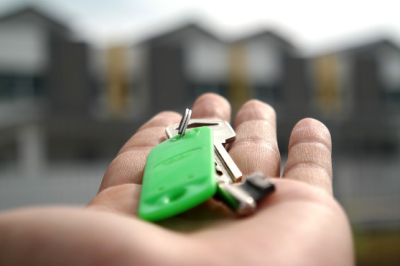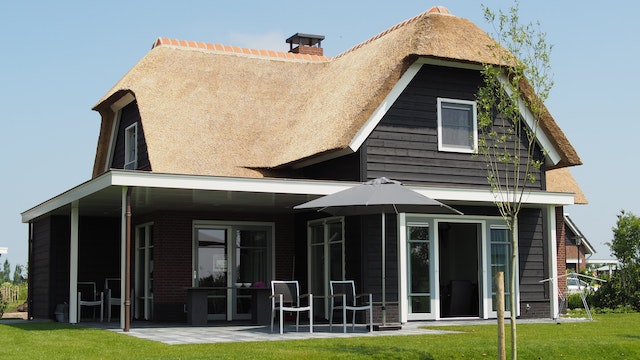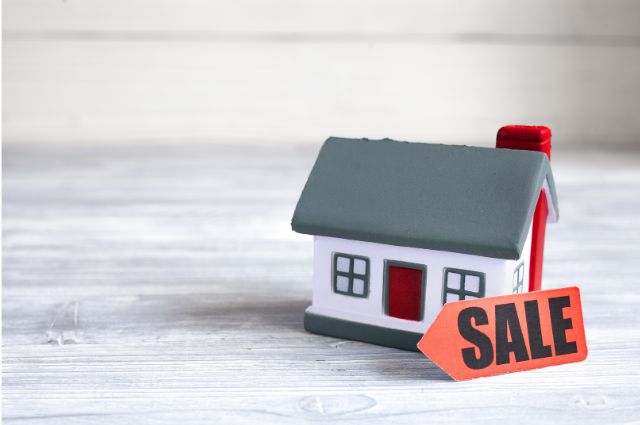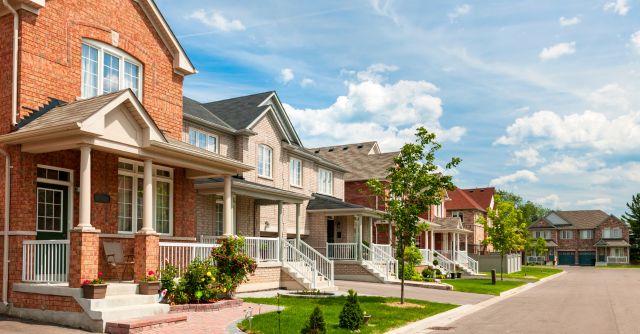12 Key Tips for Commercial Property Maintenance
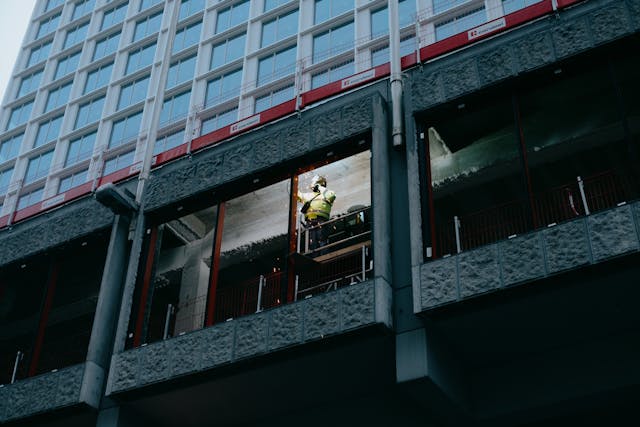
Maintaining a commercial property effectively is essential to preserve its value and ensure it remains appealing and functional for tenants and visitors.
Chicago, with its bustling business environment and extreme seasonal weather, presents unique challenges in property maintenance.
From the sweltering summers to the freezing winters, the demands on building infrastructure are significant, emphasizing the need for a strategic approach to upkeep. In this blog, we will share key tips to help you manage the complexities of commercial property maintenance efficiently.
1. Regular Roof Inspections
To prevent potential leaks and structural damage, regular roof inspections are crucial. It is wise to conduct these inspections at least twice a year, particularly after the harsh Chicago winters.
These check-ups can identify issues like cracked tiles or blocked gutters before they escalate into more costly repairs.
2. Maintain Plumbing Systems
Plumbing issues can quickly become a major concern in any building, leading to significant water damage and costly disruptions. Regular inspections of pipes, faucets, and drainage systems can help catch problems early.
Immediate attention to any irregularities, such as unusual water pressure drops or slow drains, will help maintain a seamless operation of your plumbing infrastructure.
3. HVAC System Upkeep
An efficient HVAC system is vital for maintaining a comfortable environment within your commercial property.
Regular maintenance is key to ensure reliability and efficiency, especially given Chicago’s temperature extremes. Employing a reputable Chicago commercial HVAC service for seasonal servicing can keep your systems running smoothly and prevent unexpected breakdowns.
4. Electrical System Checks
Keeping the electrical system in check is not only a matter of efficiency but also of safety. Regular inspections by certified electricians can ensure that all components meet current standards and are in good working order.
This proactive approach can help avoid electrical failures that could lead to fire hazards or power outages. Additionally, staying ahead of potential issues with frequent checks might identify opportunities for upgrading outdated systems that could improve overall energy efficiency.
Implementing modern safety devices such as circuit breakers and surge protectors also adds an extra layer of security.
5. Landscape and Exterior Maintenance
The exterior of your property serves as the first impression for visitors and potential tenants. Regular landscaping, timely snow removal during winter months, and upkeep of external lighting are all important in maintaining the aesthetic and functional quality of your property.
This not only enhances curb appeal but also ensures safety on the premises. Moreover, consistent maintenance can prevent long-term damage from weather exposure and natural wear, saving money on costly repairs. Seasonal decorations and lighting can also be considered to boost appeal and visibility throughout the year.
6. Pest Control Management
Effective pest control is essential to maintain a healthy and inviting commercial environment. Regular inspections by a professional pest control company can prevent infestations that might damage your property or harm its reputation.
Setting up a routine schedule for pest management can save you from larger issues down the line. Early detection and treatment are key to minimizing the impact of infestations and ensuring your property remains pristine and inviting.
For instance, when scorpions and other dangerous pests may pose a hidden threat, taking the help of experts, like those at Responsible Pest & Scorpion Control, for example, may be necessary as they can help stop the infestation from spreading.
In this way, they help protect your property. Additionally, educating tenants about preventive measures, such as keeping food sealed and promptly reporting any pest sightings, contributes to maintaining a pest-free environment.
7. Cleaning and Sanitation
Maintaining high standards of cleanliness is vital for any commercial property. Regular professional cleaning helps prevent the build-up of dirt and debris, which can contribute to health hazards and a less appealing environment.
Focusing on high-traffic areas such as lobbies, restrooms, and elevators is particularly important to maintain a professional appearance and hygienic conditions.
Utilizing eco-friendly cleaning agents and advanced sanitation technologies can further enhance the cleanliness and safety of your premises. Continuous attention to cleanliness also significantly improves the workplace quality for tenants and visitors.
8. Security System Updates
Regular checks and updates of the security system ensure all components are functioning properly. Upgrading technology as improvements become available can also enhance the effectiveness of your security measures, keeping the property safe from unauthorized access and other security breaches.
Adding new features such as biometric scanners and smart access controls can further secure sensitive areas and data. Regular training for security personnel on new technologies ensures they are prepared to handle the most advanced security tools effectively.
9. Compliance with Safety Regulations
It’s important to remain compliant with all local and federal safety regulations to avoid legal issues and ensure the safety of tenants and visitors. Regular reviews of safety protocols, fire safety systems, and accessibility features help maintain compliance.
Engaging a professional to conduct these reviews can provide insights into potential areas of improvement and ensure all practices are up to date. These reviews also help in aligning the property with the best practices industry-wide, further bolstering its reputation. Documentation of compliance efforts is crucial for legal safety and proving diligence.
10. Emergency Preparedness
A well-prepared property is safer and more reliable. Developing and regularly updating an emergency preparedness plan is essential.
This plan should include evacuation routes, emergency contact numbers, and locations of emergency equipment. Training staff and conducting drills regularly ensures everyone knows their role in an emergency, improving the overall safety and responsiveness of your team.
Clear communication channels and signage enhance the effectiveness of the response during an actual emergency, making sure everyone can evacuate or respond as needed promptly.
11. Energy Efficiency Improvements
Improving energy efficiency is not only good for the environment but can also reduce operational costs significantly. Consider implementing measures such as installing energy-efficient lighting, optimizing heating and cooling systems, and enhancing insulation.
These updates can lead to substantial savings and make your property more attractive to potential environmentally conscious tenants. Periodic assessments of energy consumption can identify further areas for improvement, while investments in renewable energy sources like solar panels can offer long-term benefits and independence from non-renewable energy sources.
12. Schedule Regular Maintenance Reviews
To avoid the pitfalls of reactive maintenance, scheduling regular reviews of your property’s maintenance needs is essential.
These reviews can help identify issues before they become serious problems, allowing for planned interventions that are less disruptive and more cost-effective. Keeping a detailed maintenance calendar and adjusting it based on the property’s usage patterns ensures all aspects of the property are cared for properly.
Conclusion
Maintaining a commercial property requires a proactive and comprehensive approach. By implementing the tips outlined, property owners and managers can ensure their buildings operate efficiently, remain aesthetically pleasing, and uphold the highest safety standards.
Ultimately, regular maintenance is an ongoing investment in your property’s value and appeal, crucial for attracting and retaining tenants and ensuring smooth operations.


